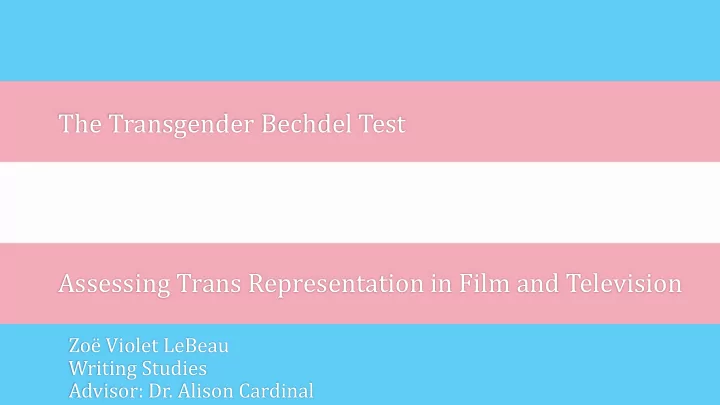

The Transgender Bechdel Test Assessing Trans Representation in Film and Television Zoë Violet LeBeau Writing Studies Advisor: Dr. Alison Cardinal
Why Is Trans Representation Important? Trans people are everywhere • Heavily Marginalized (esp. trans women of color) • Vulnerable • Targets of violence • Less access to mental health services and support • • Housing discrimination and homelessness (1 in 5) Precarious legal standing • Other countries •
Film and Television Have Global Reach • Transfeminine characters in cinema have traditionally been Villainous (Buffalo Bill in Silence of The Lambs, Einhorn in Ace Ventura: Pet Detective • Deceptive (Dill in The Crying Game) • Mentally Unstable (Mantis) • • The above are also how anti-trans activists caricaturize trans women in real life • Fictional media shapes the discourse of transgender politics • Most people may never knowingly meet a trans person • Other than having seen one in film or television
The Bechdel Test • Based on an issue of Alison Bechdel’s comic, Dykes To Watch Out For • Not originally designed as an academic tool • For a film to pass: • It must contain a scene featuring two women • Who have a conversation with each other • About something other than a man • Very few films pass
The Trans Bechdel • Looking at representation through a transfeminist lens 1. How does the portrayal humanize transgender people to a cisgender audience? 2. How does the portrayal other transgender people to a cisgender audience? 3. How might the film be hurtful to the trans community? 4. Does the film recognize/represent Stryker’s concept of transgender rage?*
Works Cited • Blah blah blah
Recommend
More recommend